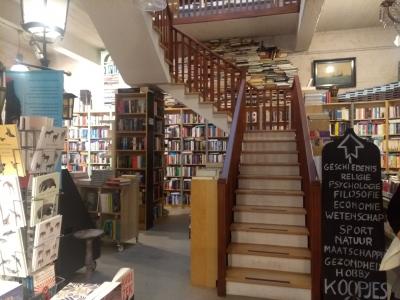Central European Bookselling Markets: what we can learn from 2021 figures
Analysing the preliminary sales figures from the past 12 months, we take a closer look at nine bookselling markets in the central Europe
The international bookselling markets underwent significant changes in 2021, impacted by the ongoing pandemic, subsequent sanitary restrictions and pandemic-induced challenges. As the first 2021 sales numbers roll in, we take a closer look at the Central European bookselling markets to see how the region fared over the past 12 months.
For the purpose of this article, the Central European region includes the following countries: Austria, the Czech Republic, Germany, Hungary, Poland, Slovakia, Slovenia and Switzerland (see Graphic 1 below). The bookselling markets in these countries have different characteristics, with some countries having a fixed book price markets (e.g. Austria, Germany, and Hungary), while others don’t (e.g. Czech Republic and Switzerland). During the course of the pandemic, Slovenian Government suspended the fixed book price regime until at least 30 April 2022, while at the same time the Polish Chamber of Books was hosting a series of industry debates aiming to introduce the law into their market.

All of the markets analysed experienced some sort of lockdown measures during the course of 2021. In almost all cases, these movement restrictions resulted in an increase in online shopping. Nevertheless, while some national bookselling markets experienced growth (e.g. Austria, Germany, and Switzerland), other saw brick and mortar, and mainly independent, bookshops closing and their market shrinking (e.g. Czech Republic and Poland).
What we can learn from 2021 figures?
- Online strategy was crucial for driving the growth of book markets
Across the German-language bookselling markets, including Austria, Germany and the German-speaking Switzerland, the annual sales turnover for books grew (see Chart 1 below). As reported by the Börsenverein, the German Publishers and Booksellers Association, the turnover in 2021 increased by 3%, compared to 2020 numbers, across central sales channels. The bookselling market even grew in comparison with 2019, pre-pandemic year, by almost 1%.
In Austria, the total sales in the book market increased by 4% in 2021, compared with 2020, and by 0.4%, compared by 2019. The Austrian Association of the Book Trade (Hauptverband des Österreichischen Buchhandels) noted the relative growth of the market in the past year is largely due to the trade’s uptake of online strategy.
The German-speaking Swiss bookselling market shows a similar trend: for the third time in a row, annual sales in the Swiss German book trade have increased. In 2021, growth was at 6.5%. According to Tanja Messerli, Managing Director at the Swiss Booksellers and Publishers Association (SBVV), national lockdown contributed to increased online sales: “Almost every second book was sold online in 2021. Not only did the large booksellers benefit from this trend; due to the COVID-19 pandemic, small bookshops also expanded their online shops and many customers remained virtually loyal to their stores.”
- Physical retail sales drastically impacted
In Germany, physical bookstore business was unable to make up the shortfall from the months of store closures in spring and finished with a 3% drop in revenues compared to 2020 and a staggering 11% drop compared to the pre-pandemic year of 2019, as was reported in Börsenverein’s press release.
In Austria, sales in stationary bookstores lost almost 2% compared to 2020. However, looking back to 2019, the drop in sales is much bigger, coming to -13%. According to Karl Puš, bookseller and former owner of Bestseller Bookshop, “shops have been closed by lockdown measures for 48 days in 2021. Especially the last lockdown in 2021 was very hard, as it lasted for three weeks and ended on 13 December. This means that shops were closed during the most important time of the year for the book trade – the holiday period. With online sales, posting services, home delivery and click and collect at the shop door, many of the smaller independent bookshops turned out to be more successful than the large chain stores, which were mostly located in shopping malls”.
In Poland, many brick and mortar bookshops closed in 2021. According to the National Book Store Database, over 60 bookshops closed in the past year in Poland. This follows the closure of another 100 store during 2020. There are still over 1,700 bookstores across the country, which has a population of 38 million. The Polish Ministry of Culture and National Heritage launched a program to help independent bookstores. As part of the "Certificate for Small Bookstores" project, almost PLN 3 million (€ 660,000) went to 106 bookstores. Most shops received grants of up to PLN 30,000 (€ 6,630).
While there aren’t any recent sales numbers available for the Czech Republic, Hungary, Slovakia or Slovenia, the 2020 reports from these countries don’t look too encouraging for booksellers. Comparing sales numbers from 2019 to 2020, the total book sales numbers are down by 11% in Hungary. In Slovakia, available information points to a decrease in sales for physical bookstores by 8%, while internet sales increased by 10%.
The Czech Republic introduced a strict national lockdown from 27 December 2020 to 10 May 2021, when stores were allowed to re-open. Although customers returned to physical bookstores after the restrictions were lifted, the stores in most cases failed to replace the lost turnover. In 2020, bookstore turnover fell sharply, by 15-30%. This has drastically impacted small bookshops, and exacerbated the closing down of small, independent bookshops. There are about 600 brick and mortar bookstores in the Czech Republic, of which the largest are run by retail chains, which together own 263 stores.
- Impact of paper shortage
The paper shortage and increased shipping delays are continuing to wreak havoc on the bookselling industry. Many publishers have been forced to postpone the release of planned titles, which in turn impacted the number of available titles in bookshops during the holiday period. Crucially, the paper shortage is also having an impact on book prices.
What is on the horizon for 2022
During the 2020 Slovenian Book Fair, book trade experts dived into the post-pandemic future, exploring what the trade can learn from the pandemic. Many of the topics discussed remain crucial for the bookselling market going forward, including potential weaker customer purchasing power, increased market share of audiobooks, need to develop new distribution channels to reach new customers and supporting the increased digitization of the book market.








